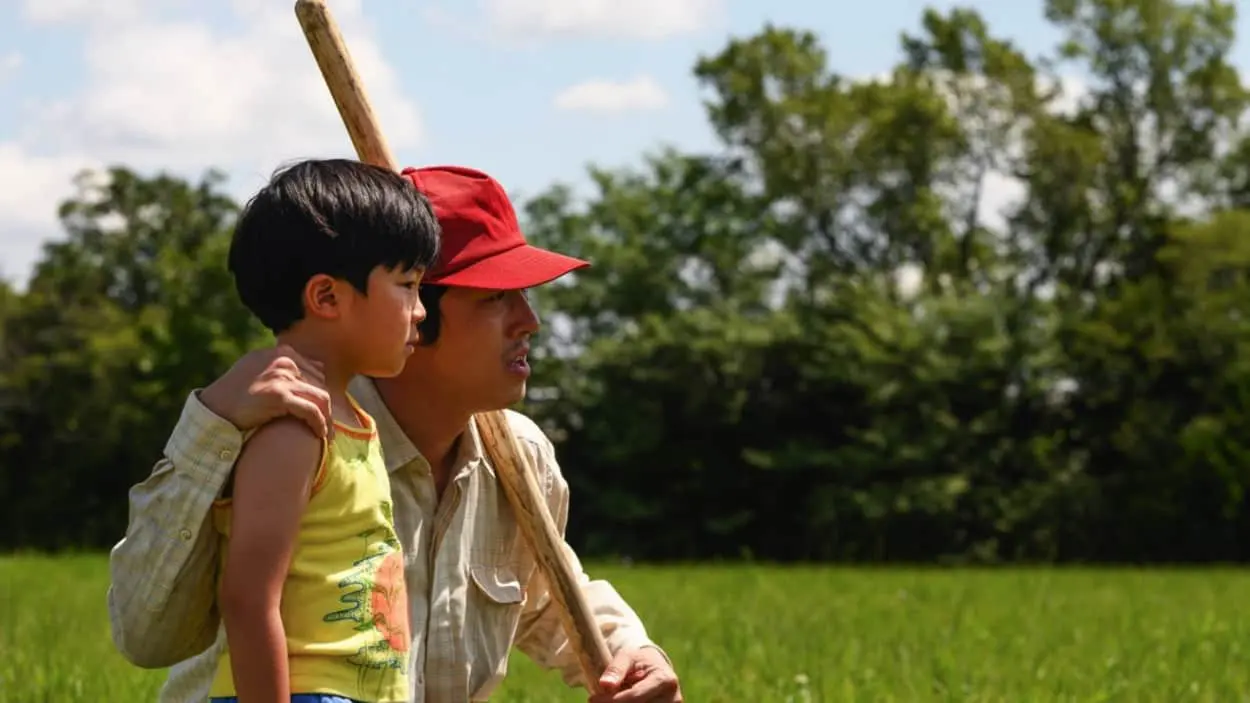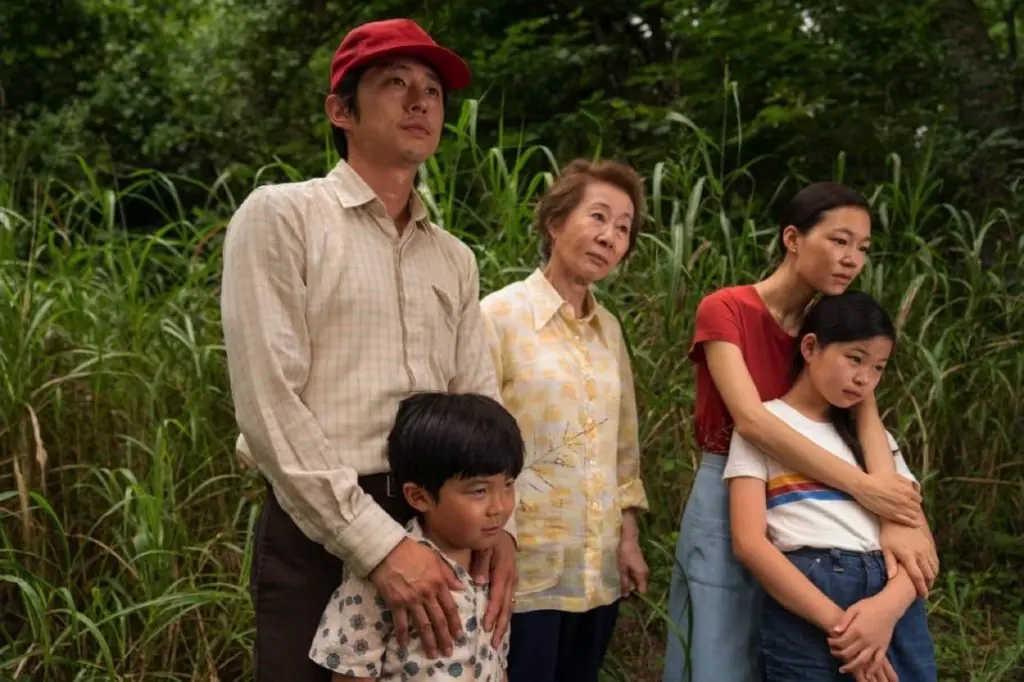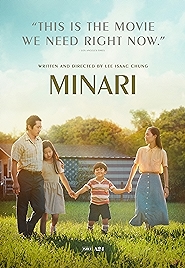Minari is an old-school film of the sort you used to see at Sundance a lot, gentle character driven dramas full of people who were essentially decent. The sort of film Robert Redford used to direct, like Ordinary People or The Milagro Bean Field War or A River Runs Through It (which starred Brad Pitt, an exec producer here). It did well there, winning both the Grand Jury and Audience awards.
In the dying days of the Donald Trump administration it asks and answers the question: who built America? The answer is immigrants, though that message is never uttered out loud. Instead we follow a Korean family who’ve moved out from the city to make a go of life on a farm growing the specialist vegetables they hope other Korean immigrants will want to buy.
It’s his dream, not hers. Though it’s not much more than a big market garden really, this Arkansas plot means everything to Jacob (Steven Yeun). His wife Monica (Yeri Han) would rather be back in the city rather than living in a trailer with her husband and two children. To make ends meet Jacob and Monica also work in a chicken-sexing facility. The female chicks go on to become egg layers, the males are “discarded”. Cut grimly to a chimney stack belching smoke.
It’s details like this that make Minari a real film rather than a pro-this-or-that screed. When Jacob takes on a neighbour to help on the farm, Paul turns out to be an extremely zealous Christian, the sort given to praying in tongues and occasionally carrying his own crucifix down the road. The other locals think he’s nuts. Jacob quietly does too, but Paul is a good worker and a decent guy and knows about vegetables and Will Patton plays him as an individual rather than a type, in a performance reminding us how good he is when he’s not playing cutout characters.
In fact it’s the Americans in this film who are the “other” rather than the Korean immigrants, a symptom of how successfully writer/director Lee Isaac Chung has embedded us with this struggling family.
Minari is the Korean name for water celery, which Monica’s mother Soonja aka Grandma brings with her when she arrives to take up residence. Whereas Jacob is all about the US – he sits at the table to eat his dinner, Grandma is old-country, preferring to squat. Monica fits neatly between the two of them. Wary of going forwards, probably incapable of going back.
As Grandma, Youn Yuh-jung is the standout in this film. It’s a gift of a role, standing in a long line of comedy grandmas, but Youn makes it more than you’d see on the page – this Grandma has history. If you’ve seen the South Korean drama The Housemaid, you’ll have seen Youn doing this before.
Special mention also to the exceptional Alan S Kim, as David the six-year-old whose battles for territorial control include him switching grandma’s Korean broth for a bowl of his own warm piss – what a great little sparring duo they make. Poor Noel Cho, as daughter Anne, trails along in their wake, sweet and accomplished though she obviously is.
Here’s a film that includes the theft of water by night, a kid with a heart condition, an exorcism and someone having a stroke, all of them invitations to melodrama and all of them roundly ignored. The film moves on at its own gentle pace, sure of where it’s going.
There are no big speeches, no message moments and – apart from one scene that comes across as engineered compared to the organic flow of the rest of it – no moments of high drama. Staying on the farm through the bad times is held up as being just as honourable as packing it all in and going back to the city, where steady nose-to-grindstone jobs will at least give the kids a known future.
Instead of triumph against adversity, we see the trials and tribulations of daily life. Arguments, disasters, and even the occasional small win. Everyday heroism on a believable human scale. The old-school Sundance movie.
Minari – Watch it/buy it at Amazon
I am an Amazon affiliate
© Steve Morrissey 2021


